Thank you very much, Katsiaryna and E.M. [1], for accepting to give us an interview on the situation in your country as well as its relations with the European Union.
The Eastern Partnership (EaP) was launched eleven years ago. However, the European Union’s (EU) relations with Belarus are still relatively weak compared to other EaP countries. How have EU-Belarus relations evolved since 2009? And which are the most tangible elements of Belarus’s EaP membership for you?
Katsiaryna Lozka [2]: Given the complex political situation in the country, cooperation between Belarus and the EU remained tense and limited in scope compared to other members of the EaP. Ever since Belarus fell into authoritarianism in the mid-1990s, EU-Belarus relations have been overshadowed by problems. Indeed, following undemocratic developments in the country, the EU decided to suspend ratification of the Partnership and Cooperation Agreement.
Belarus was also de facto not integrated into the European Neighbourhood Policy launched in 2004 as no Action Plan underpinning this policy has ever been agreed. In fact, relations between the two actors are still regulated by the 1989 Trade and Cooperation Agreement concluded by the European Communities [3] with the Soviet Union. As a result, Belarus’ participation in the EaP was not taken for granted, and there were doubts as to whether it would be a member of this initiative at all. However, Belarus’ rather neutral position on the 2008 developments in Georgia allowed it to join the “club”.
Nonetheless, despite its formal inclusion into the EaP, Belarus has been lagging behind other members in terms of the scope of cooperation, projects, and overall progress. More specifically, the Eastern Partnership encompasses bilateral and multilateral formats of cooperation. However, cooperation between the EU and Belarus takes place within the multilateral format only, and high official contacts with the Belarusian regime remained limited. In terms of economic cooperation, the EU has also had limited success with Belarus. In response to political disappearances [4] and violations of international electoral standards, the EU imposed sanctions against Belarusian officials in 2004.
They were lifted in 2016 (and renewed last year - 2020). Furthermore, in 2007 due to labour rights violations, Belarus was withdrawn from the Generalised System of Preferences (GSP). However, the effectiveness of such economic pressure has been marginal as the EU does not have a substantial economic leverage over the country (as it does for example in Moldova): while being Belarus’ second biggest trading partner, the EU and its Member States account for less than 20% of the country’s foreign trade turnover (compared to almost 50% by Russia).
A major shift in EU-Belarus relations happened against the backdrop of the Ukraine crisis. Since 2013 the contacts significantly intensified. Until last year Belarus was the host of the Normandy Format peace talks. In 2017 Belarus hosted the OSCE Parliamentary Assembly summer session with high level leadership of OSCE member states visiting the country. In November 2019 President Lukashenka visited Vienna, reportedly his first official visit to Europe in 23 years.
In 2020 the EU and Belarus finally signed the visa facilitation agreement which entered into force in July 2020. Nevertheless, these advancements have not had any effect on the political environment in Belarus. However, as we could see last year, such prioritizing of stability over democracy is a rather short-sighted approach with far-reaching implications.
Despite this, the EaP membership brought some positive tangible effects, in particular within its “Mobility and People-to-People contacts” platform. For instance, over 3.000 Belarusian students benefited from Erasmus+ program. Then, the Belarusian civil society got represented in the EaP Civil Society Forum, an important achievement considering its vulnerable position. That said, the political situation in Belarus has constantly been an obstacle to the implementation of any grassroot initiatives.
E.M.: The presidential elections of 2010 were the reason of EU sanctions against Belarus, and it took a long time to lift them and have a better track of bilateral relations. Before the elections of 2020, EU-Belarus relations had seen a number of improvements, including the finalising of the negotiations on visa facilitation and readmission agreements. In the Ukrainian crisis, Belarus was seen by the EU as an important security mediator. But the Belarusian government has clearly destroyed previous efforts and achievements. Now, the EU is working on further ways of building its relations with Belarus together with the democratic opposition.
As for the EaP framework, it has always been very important for Belarus and its citizens. Even though the level of visibility of some projects could be improved, economic, cultural, educational and other areas of regional cooperation have been boosted thanks to EaP membership. EaP combines countries which might have different ambitions towards the EU. But what’s important is that this framework gives Belarus a chance to be a part of EU projects and programmes, as well as a broader regional network.
On 1 July 2020, the EU-Belarus visa facilitation and readmission agreements entered into force. How big an improvement is it from the Belarusian point of view?
E.M.: This improvement was significant especially after so many years of negotiations. However, due to COVID-19, the visa facilitation regime with the EU was not implemented in practice. And the current political crisis in Belarus could negatively influence this agreement. Yet, the EU is trying to support Belarusian citizens, and the visa regime is one of the most important aspects of real assistance to ordinary citizens and benefits of EaP framework in general. Individual EU Member States, such as Poland and Lithuania, are currently using their own visa facilitation in the context of the political crisis. This initiative should be supported by other Member States.
The current guidelines for EU-Belarus relations are provided by the Council conclusions of 12 October 2020. In these conclusions, the EU decided to “scale down bilateral cooperation with the Belarusian authorities at central level, increase its support for the Belarusian people and civil society”.
How do you evaluate the EU’s support for Belarusian people?
K.L.: As we discussed, the European Union has limited leverage over the Belarusian regime. Also, amidst the 2020 crisis, the EU has taken a rather cautious approach with an eye out for the Kremlin cognizant that any symbolic or political support of the EU to the Belarusian pro-democracy movement would trigger accusation of meddling into internal affairs. It has been repeatedly expressed by the Belarusian regime and the Kremlin.
Yet, the EU has supported the Belarusian people in several ways. First, there is a moral or ethical component, namely expression of solidarity with the Belarusian people. Such support should not be underestimated as it signals to the Belarusian people that they are not alone. This includes statements of EU officials in support of the Belarusian people, regular acts of solidarity across Europe, etc.
Second, the EU and its Member States continue to provide support to the persecuted opposition and people in humanitarian need by granting visas and asylum. Neighbouring Poland and Lithuania stand out in this regard. Another example is the Czech Republic that accepted a number of Belarusians who had been victims of police brutality for medical treatment. However, these are the initiative implemented at the national level, not under the EU umbrella.
Third, the EU has been helping the Belarusian people amidst the pandemic. It readjusted its strategy in this regard by rerouting the financial package of €53 million from the government to Belarusian civil society. Besides, the support such as purchase and delivery of medical equipment to the Belarusian hospitals also takes place in the framework of Ukraine-Poland-Belarus Cross-Border-Cooperation (CBC). This is an important element given the Belarusian regime’s dismissive attitude toward the pandemic and even its intentional spreading at the detention centers. Finally, last year the EU endorsed the Polish initiative of the “Marshall Plan for Belarus”, a package of financial assistance to democratic Belarus.
These are all crucial components of EU’s support for the Belarusian people. Nonetheless, finding a proper response to the violent crackdown from the Belarusian regime without adversely affecting the Belarusian population remains a challenge.
How have EU restrictive measures against Belarus been debated in the European Parliament, the Council and the European Council?
E.M.: I think the European Parliament was the most active in the debate on the situation in Belarus. It is not surprising, because other institutions take more technical decisions and the debates are less mediatised. Some MEPs showed an increased interest towards Belarus and pushed for more EU assistance to Belarusian citizens and the democratic opposition and for less cooperation with the current government. In terms of introducing restrictive measures against Belarus, there was a solid support and consensus among EU institutions.
The adoption of sanctions took a lot of time, which made the EU consider introducing Global Human Rights sanctions regime (the “EU Magnitsky Act”), meaning sanctions can be imposed on individual human rights violations more quickly. I think this instrument definitely expands the EU’s opportunities to react to crisis situations.
Besides an internal political crisis, Belarus is also facing the COVID-19 pandemic. You have recently written a research article on the impact of COVID-19 on the conflicts in the EU’s eastern neighbourhood. How would you compare the way the EU and Russia have addressed the health crisis in Belarus?
K.L.: While COVID-19 was one of the biggest triggers of popular discontent on the eve of the 2020 presidential “election”, it has become a somewhat secondary issue after it. Democratic aspirations have been central for the Belarusian people who continue to take to the streets despite repression and the pandemic.
The Belarusian President’s denial of the existence of COVID-19 has caught the world’s attention. Up until now, no reliable statistics on the number of cases have been published and the virus continues to be intentionally spread at the detention centers. Belarusian doctors continue to be subject to political repression [5]. Despite this, since the start of the pandemic, the Belarusian population has not bought into the ‘denial’ view. People started to self-organize, and even today continue to be in many ways self-reliant in addressing the pandemic.
In March 2020, the EU came up with a support package for EaP countries in addressing the pandemic. The package for Belarus was worth €60 million. Following the August “election”, however, the EU faced the challenge of delivering this financial support, while making sure it is not abused by the Belarusian regime. The decision was made to re-route it to the civil society. Naturally, political instability and crackdown on civil society in Belarus complicated the provision of assistance. In addition to that, the EU has started a campaign in support of Belarusian medical professionals. For example, in cooperation with WHO, it launched a training course on medical treatment in the context of COVID-19.
Protest in Belarus © Nadzeja Buzhan, Nasha Niva
In turn, Russia, struggling with its domestic health crisis, has initially had a largely observant position on this issue with China being a more active player in this regard. Following Lukashenka’s disregard of the health crisis, in March 2020 Russia decided to close the border with Belarus. This unilateral measure provoked a furious response from the Belarusian regime.
In the spring of 2020, Belarus received facemasks from China, still one of the main partners of the Belarusian regime in addressing the pandemic. Russia provided a set of test kits, but the Belarusian regime publicly complained about their inaccuracies. As it is, Russia and China remain the main actors on the ground. In March 2021, Belarus started vaccination with Chinese Vero Cell. Equally, last month, the country started to produce Russia’s Sputnik V vaccine (which Lukashenka even tried to claim ownership of as the produce of “Soviet” science).
Belarus is entering its eighth month of protests triggered by the 2020 presidential elections. Many protesters, journalists, including your friends, are being detained by the regime. The opposition leader, Sviatlana Tsikhanouskaya, had to leave Belarus and she now lives in Lithuania.
What are the chances for a democratic change, starting with new, free and fair elections in Belarus when some of the most active people are in prison or abroad?
K.L.: It is very difficult to predict what will happen in Belarus as the events often develop very unexpectedly. It is, however, important to be prepared for this change to make sure the transition period goes smoothly. Indeed, many people, including prominent activists, have left the country. As of April 13, there are 354 political prisoners in Belarus. However, the persecution of political activists do not alter public dissatisfaction, even if it largely shifted into a sort of “underground mode”. Because of massive political repressions, we do not see large-scale manifestations anymore, but the public discontent has not gone away. Every day, we have at least several people detained, often on very absurd grounds: for reading Belarusian books in public transport or for wearing white clothes. This is meant to sow fear and prevent any future protests.
However, over-reliance on the military-security apparatus is quite a dubious strategy, especially amidst the rapidly worsening economic situation. Yet, how long this entourage will remain loyal to the regime or what other game-changers may come into play remains to be seen.
Your country is often called “Europe’s last dictatorship”. What are the perspectives for a more democratic Belarus in the near future? What are the challenges both Belarus and the EU have to tackle in order to deepen their cooperation?
E.M.: This narrative was used for the whole time of independent Belarus, but even more after the 2020 elections. Many steps are now being taken to move towards a more democratic Belarus, in particular the efforts of the democratic opposition, but also citizens of Belarus. I think the main trigger for a shift to democracy is the population of Belarus itself. However, we need a stronger leadership to motivate people, to support and inspire them. History showed that great leaders are important to bring real changes.
Democratic change is a basis for a stronger cooperation with the EU. There is no way back for the current government to enhance its relations with the EU. But even with a democratic government, the EU and Belarus will still have to find a way to develop their relations. In geopolitical terms, Belarus could not just choose to move towards EU integration at some point, considering that other regional actors have a strong interest in keeping Belarus under their own influence. But stronger relations with the EU are possible.
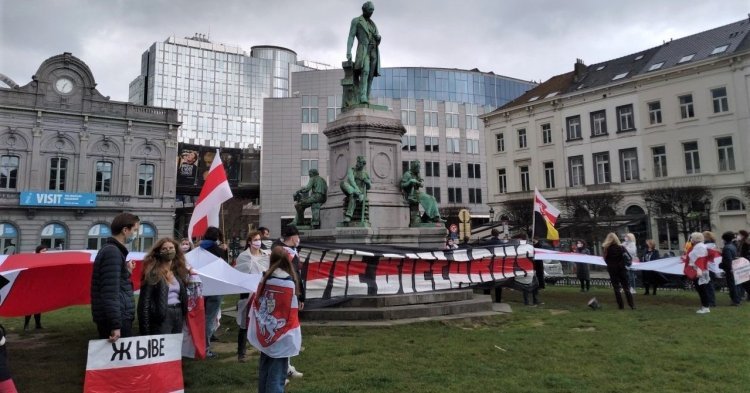
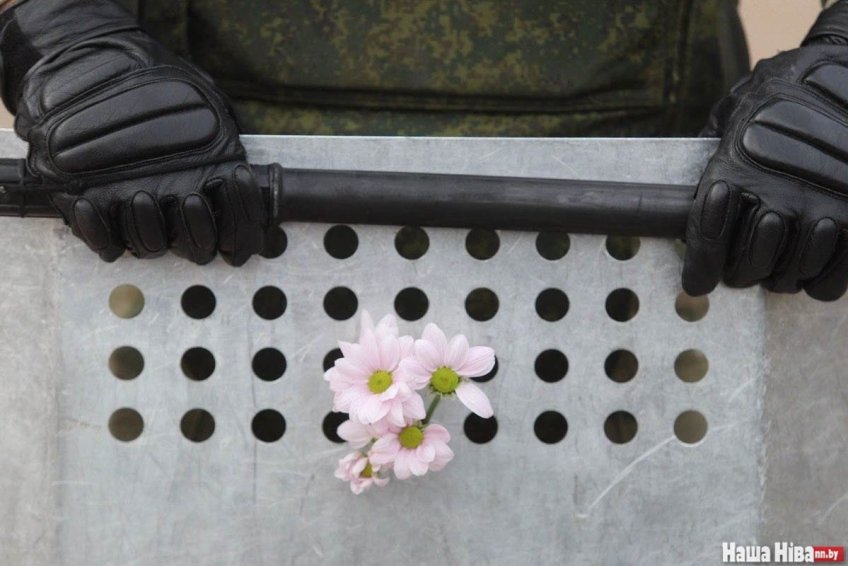

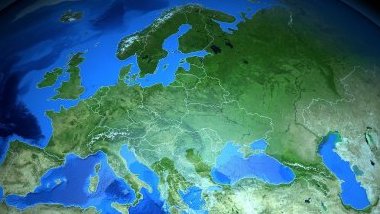
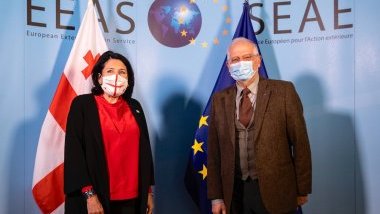
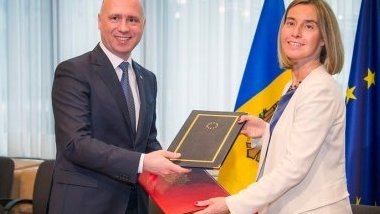
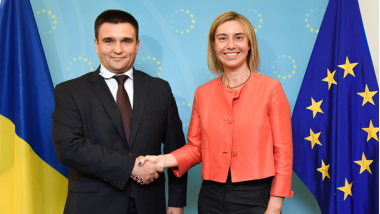
Follow the comments: |
|
